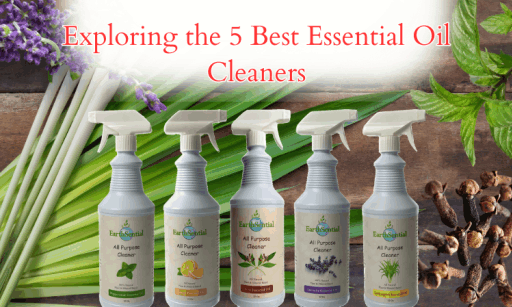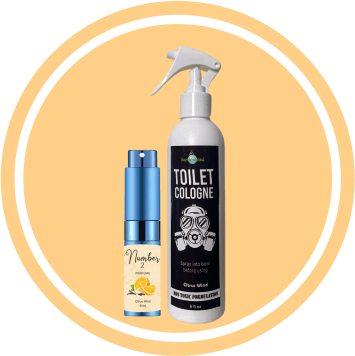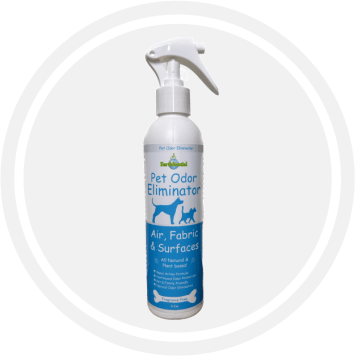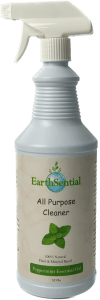Suffering from chemical sensitization or a chemical allergy?
When cleaning, are you experiencing symptoms of chemical sensitization or a chemical allergy, such as skin irritation, respiratory distress, headaches, or nausea, reacting adversely to specific cleaning agents due to heightened sensitivity or immune responses?
Chemical Sensitization:
If you ever experienced unexplained symptoms like skin rashes, difficulty breathing, or persistent headaches? You’re not alone. It’s time to shed light on a phenomenon called chemical sensitization and raise awareness about its significance.
Understanding chemical sensitization is crucial because it helps you make sense of what’s happening in your body and empowers you to take control of your health. In this educational article, we’ll explore the importance of raising awareness about chemical sensitization, how it can impact your well-being, and why it’s essential to recognize the signs and symptoms. So, get ready to gain valuable insights into this often misunderstood condition and discover how awareness can lead to a better understanding of your body and ultimately improve your quality of life. Let’s dive in!
In this Article
- Introduction to Chemical Sensitization
- Understanding Allergic Reactions and Immune System Response
- Factors Contributing to Chemical Sensitization
- Diagnosis and Medical Considerations
- Preventive Measures and Safer Alternatives
- Support and Resources for Individuals with Chemical Sensitization
- Conclusion Recap of key points regarding chemical sensitization
Chemical Sensitization or Chemical Allergy
Understanding Allergic Reactions and Immune System Response
Our immune system is an intricate network of cells, tissues, and organs that work tirelessly to protect our bodies from harmful substances. Its primary function is to distinguish between what belongs to our body and what could potentially harm us. When it encounters a foreign substance, known as an allergen, the immune system mounts a defense to neutralize it and prevent any harm to our body.
In some cases, however, the immune system can become sensitized to certain chemicals. This means that it recognizes these chemicals as potential threats and launches an exaggerated immune response upon subsequent exposure. The sensitization process typically occurs over time and involves repeated exposure to the specific chemical. During this time, the immune system undergoes a complex series of events that lead to the development of an allergic reaction.
The immune system’s sensitization to chemicals involves specialized cells called T cells and B cells. These cells play a crucial role in recognizing and responding to the chemical allergens. When exposed to a particular chemical, the immune system activates these cells, leading to the production of specific antibodies. These antibodies, known as immunoglobulin E (IgE), are designed to target and neutralize the chemical allergen. However, in individuals with chemical sensitization, the immune system overreacts and produces an excessive amount of IgE antibodies in response to the chemical.
Once sensitization occurs, subsequent exposures to the same chemical can trigger an allergic reaction. This reaction is a result of the immune system’s release of various substances, such as histamine and other inflammatory mediators. These substances cause the characteristic symptoms associated with allergies, such as itching, swelling, hives, difficulty breathing, and even life-threatening anaphylaxis in severe cases.
Understanding how our immune system protects us against allergies and how it can become sensitized to chemicals is crucial for managing and preventing allergic reactions. By recognizing potential allergens and taking steps to minimize exposure, we can help mitigate the risk of developing sensitization and experiencing allergic reactions. Stay tuned as we delve deeper into the fascinating world of allergic reactions and explore strategies to support a healthy and balanced immune system.
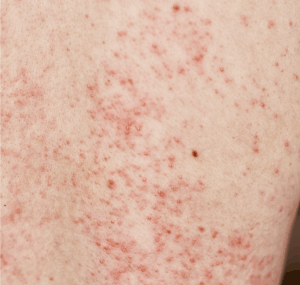
Chemical Sensitization or Chemical Allergy
Common Symptoms and Triggers of Chemical Sensitization
Let’s shine a light on the common symptoms and triggers of chemical sensitization, allowing us to better understand and address this condition. Chemical sensitization can manifest in a range of symptoms that may vary from person to person. These symptoms often occur after exposure to specific chemicals and can affect various parts of the body.
Common symptoms of chemical sensitization include skin reactions such as rashes, itching, and hives. Respiratory symptoms like coughing, wheezing, shortness of breath, and nasal congestion can also arise. Some individuals may experience eye and throat irritation, headaches, dizziness, and even gastrointestinal disturbances such as nausea and vomiting.
Identifying the chemical triggers and sources is crucial for managing and preventing chemical sensitization. Chemical triggers can be found in various everyday products, including cleaning agents, personal care products, perfumes, pesticides, and certain building materials. Some common chemical culprits include formaldehyde, fragrances, solvents, preservatives, and certain metals like nickel.
It is important to note that the specific chemicals that trigger sensitization can vary from person to person. What may cause a reaction in one individual may not affect another. Additionally, the concentration and duration of exposure can influence the likelihood and severity of the sensitization response.
By being aware of the common symptoms and identifying the potential chemical triggers and sources, individuals can take proactive steps to minimize exposure and reduce the risk of developing chemical sensitization. Stay with us as we explore practical strategies to create a safer and healthier environment for everyone, free from the burdens of chemical sensitization.
Factors Contributing to Chemical Sensitization
Understanding the factors that contribute to chemical sensitization is crucial in comprehending why certain individuals may develop this condition. While the exact mechanisms are not fully understood, several factors have been identified as potential contributors.
Prolonged and repeated exposure to chemicals is a significant factor in the development of sensitization. Continuous contact with certain chemicals, either in the workplace or at home, can gradually sensitize the immune system, leading to allergic reactions. This prolonged exposure can occur through various routes, including inhalation, skin contact, or ingestion.
Genetic predisposition and individual susceptibility also play a role in chemical sensitization. Some individuals may have an inherent predisposition to develop sensitization reactions due to genetic factors. Certain genetic variations can affect how the immune system responds to chemical exposure, making some individuals more susceptible than others.
Occupational exposure is another crucial aspect to consider. Certain industries, such as manufacturing, construction, healthcare, and hairdressing, involve regular contact with chemicals that can increase the risk of sensitization. Workers in these high-risk industries may be exposed to higher concentrations of chemicals or a wider range of sensitizing agents, making them more prone to developing chemical sensitization.
It’s important to note that while these factors contribute to the development of chemical sensitization, the condition can affect anyone, regardless of occupation or genetic predisposition. Even common household products or environmental exposures can lead to sensitization in susceptible individuals.
By understanding these factors, individuals can take proactive steps to reduce their exposure to potentially sensitizing chemicals and create a safer environment. In the following sections, we will explore preventive measures and strategies to minimize the risk of chemical sensitization and promote overall well-being.

Do I have chemical sensitization or a chemical allergy?
Diagnosis and Medical Considerations
When it comes to chemical sensitization, seeking medical evaluation is essential for an accurate diagnosis and appropriate management. If you suspect that you may be experiencing symptoms related to chemical sensitization, it is crucial to consult a healthcare professional who specializes in allergies or immunology.
Medical evaluation typically involves a thorough assessment of your medical history and a detailed discussion of your symptoms. Your healthcare provider may ask about your exposure history to various chemicals and substances, including those in your home, workplace, or hobbies. This information will help identify potential triggers and assess the likelihood of chemical sensitization.
Diagnostic tests and procedures may be recommended to confirm the diagnosis of chemical sensitization. These can include patch testing, where small amounts of potential allergens are applied to your skin to observe any allergic reactions, or specific IgE blood tests to detect the presence of antibodies associated with sensitization. Additionally, pulmonary function tests may be performed to evaluate lung function and assess respiratory health.
Once diagnosed, managing chemical sensitization involves minimizing exposure to known triggers and adopting a proactive approach to reducing contact with sensitizing substances. This may involve modifying your environment, such as using alternative cleaning products, wearing protective gear when necessary, and implementing ventilation measures to reduce indoor air pollution.
Treatment options for chemical sensitization focus on alleviating symptoms and managing associated conditions. This can include the use of medications to control allergic reactions, such as antihistamines or corticosteroids, and the implementation of lifestyle changes to promote overall well-being and reduce symptom severity. In some cases, immunotherapy may be considered, where the immune system is gradually exposed to small amounts of the triggering substance to build tolerance.
It is important to note that each individual’s situation is unique, and treatment plans should be tailored to their specific needs. Working closely with a healthcare professional experienced in managing chemical sensitization is crucial for developing an effective and personalized management approach.
By seeking medical evaluation, undergoing appropriate diagnostic tests, and following the recommended management strategies, individuals with chemical sensitization can better understand their condition and take steps towards improving their quality of life.
Preventive Measures and Safer Alternatives
Avoiding chemical sensitization or a chemical allergy
When it comes to preventing chemical sensitization and reducing the risk of adverse reactions, there are several proactive measures you can take to safeguard your health. Minimizing exposure to potential allergens and irritants is crucial in maintaining a safe environment.
One of the key strategies is to identify and avoid known triggers. This involves understanding the substances or chemicals that have previously caused sensitization or allergic reactions and taking steps to limit or eliminate exposure to them. This may require changes in your daily routines, such as selecting alternative cleaning products, cosmetics, or personal care items that are free from common irritants or allergens.
Choosing safer alternatives and adopting healthier cleaning practices can significantly reduce the risk of chemical sensitization. Look for products that are labeled as hypoallergenic, fragrance-free, and free from known sensitizing agents. Consider opting for natural or eco-friendly alternatives that utilize plant-based ingredients and avoid harsh chemicals. Additionally, maintaining good ventilation in your living and working spaces can help minimize the accumulation of airborne irritants and enhance indoor air quality.
Reading product labels and understanding ingredient lists is paramount in making informed choices. Familiarize yourself with common allergens and sensitizing agents, such as certain preservatives, fragrances, or dyes, and avoid products that contain these substances if you have experienced sensitivity in the past. Labels that provide comprehensive ingredient information and clearly indicate the absence of known irritants can assist in selecting safer options.
Furthermore, establishing a consistent skincare routine that includes moisturizing and protecting the skin’s barrier function can help minimize the risk of sensitization. Keeping the skin well-hydrated and protected can enhance its resilience and reduce the likelihood of reactions to potential irritants.
By implementing these preventive measures and incorporating safer alternatives into your daily life, you can significantly reduce the risk of chemical sensitization and promote a healthier living environment. Taking the time to educate yourself about potential triggers, making conscious choices when selecting products, and adopting safer practices can make a substantial difference in safeguarding your well-being.
Support and Resources for Individuals with Chemical Sensitization or a Chemical Allergy
For individuals dealing with chemical sensitization or a chemical allergy, it is important to know that you are not alone. There are various support systems and resources available to help you navigate through this condition and find the necessary support.
Support groups and online communities can provide a valuable platform for connecting with others who share similar experiences. These groups offer a space to share insights, exchange coping strategies, and provide emotional support. By joining these communities, you can gain valuable knowledge and find solace in knowing that others understand and empathize with your journey.
Advocacy organizations dedicated to chemical sensitization play a crucial role in raising awareness, promoting research, and advocating for the rights and well-being of individuals affected by this condition. These organizations provide valuable resources, information, and guidance to help individuals better understand their condition and navigate through the challenges they may face.
Education and awareness campaigns are instrumental in fostering understanding and acceptance of chemical sensitization. These initiatives aim to educate the public, healthcare professionals, and policymakers about the condition, its impact, and the need for safer environments. By increasing awareness, we can promote a more inclusive and accommodating society for individuals with chemical sensitization.
Accessing professional guidance and medical support is vital in managing chemical sensitization effectively. Seeking guidance from healthcare professionals who specialize in environmental medicine or allergology can provide valuable insights into your condition. These professionals can offer personalized advice, diagnostic tests, and treatment options tailored to your specific needs.
Additionally, it is important to work closely with your healthcare team to develop an individualized management plan. They can provide recommendations for lifestyle modifications, allergen avoidance strategies, and appropriate medical interventions to help minimize symptoms and improve your quality of life.
Remember, there is a wealth of support and resources available to individuals with chemical sensitization. By utilizing these resources, connecting with others, and seeking professional guidance, you can find the support you need and take proactive steps towards managing your condition effectively
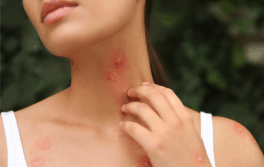
Key points regarding chemical sensitization and chemical allergy
Chemical sensitization is a real and significant health concern that affects many individuals. It is crucial to recognize the key points discussed in this article to protect your health and well-being.
We have learned that chemical sensitization is characterized by an exaggerated immune response to certain chemicals, resulting in a range of symptoms that can significantly impact daily life. By understanding the triggers and symptoms associated with chemical sensitization, you can better identify and address potential allergens and irritants in your environment.
Prolonged and repeated exposure to chemicals, genetic predisposition, and occupational exposure are important factors contributing to chemical sensitization. Being aware of these factors can help you make informed decisions about your lifestyle and environment, reducing the risk of developing sensitization.
Preventive measures and safer alternatives play a crucial role in managing chemical sensitization. By minimizing exposure to potential allergens and irritants, using alternative products, and adopting safer cleaning practices, you can create a healthier and more supportive environment for yourself.
It is also essential to read product labels and understand ingredient lists. By being informed about the chemicals present in the products you use, you can make conscious choices that align with your health needs and reduce the risk of triggering sensitization.
In prioritizing your personal health and well-being, it is important to seek medical evaluation if you suspect chemical sensitization. Diagnostic tests and professional guidance can provide valuable insights and help develop an individualized management plan.
By embracing these principles, you can take charge of your health and well-being, reducing the impact of chemical sensitization on your daily life. Remember, your health matters, and understanding and addressing chemical sensitization are key steps towards living a healthier and more comfortable life.

Your Hypoallergenic Cleaning Solution
Say goodbye to your chemical sensitivity and make the switch to EarthSential all-purpose cleaner today. This remarkable product is specifically designed to address the needs of individuals with sensitivities and allergies. EarthSential is not only hypoallergenic but also made with plant-based ingredients and essential oils, ensuring a safer and healthier cleaning experience for you and your family.
Unlike traditional household cleaners that can contain harsh chemicals and irritants, EarthSential harnesses the power of nature to deliver effective cleaning without compromising your well-being. The plant-based ingredients used in EarthSential are carefully selected for their cleaning properties and low risk of triggering allergic reactions or sensitivities.
With EarthSential, you can confidently clean your home without worrying about the potential adverse effects of chemical exposure. The essential oils in EarthSential not only provide a refreshing and pleasant aroma but also offer additional benefits, such as antimicrobial properties and mood-enhancing effects.
By choosing EarthSential as your go-to household cleaner, you can create a healthier and more sustainable living environment. Say goodbye to the harsh chemicals and hello to a cleaner and greener home. Make the switch to EarthSential today and experience the refreshing difference it brings to your cleaning routine. EarthSential’s hypoallergenic formula, crafted with plant-based ingredients and essential oils, offers a powerful yet gentle cleaning experience that is safe for you, your loved ones, and the planet.
Its carefully selected ingredients not only effectively remove dirt and grime from various surfaces but also leave behind a delightful, natural scent that enhances your home’s ambiance. With EarthSential, you can enjoy peace of mind, knowing that you are using a cleaner that is free from harsh chemicals and is kind to both your health and the environment. Embrace a new level of clean, sustainability, and well-being by making the switch to EarthSential today.
EarthSential
All Purpose Cleaners:
Each designed to bring a touch of natural freshness and cleaning power to your home.
Available in: Clove, Lavender, Lemongrass, Mint & Orange. We have a natural cleaner for every preference. Dilute for light duty.
These versatile cleaners can be used on a variety of surfaces, including kitchen and bathroom counters, floors, furniture, and even pet items. With their powerful cleaning abilities, they effectively remove stains and dirt, leaving surfaces sparkling clean.
We prioritize your well-being and the health of our planet.
That’s why our products are carefully crafted to be non-toxic, ensuring a safe and healthy cleaning experience for you and your family.
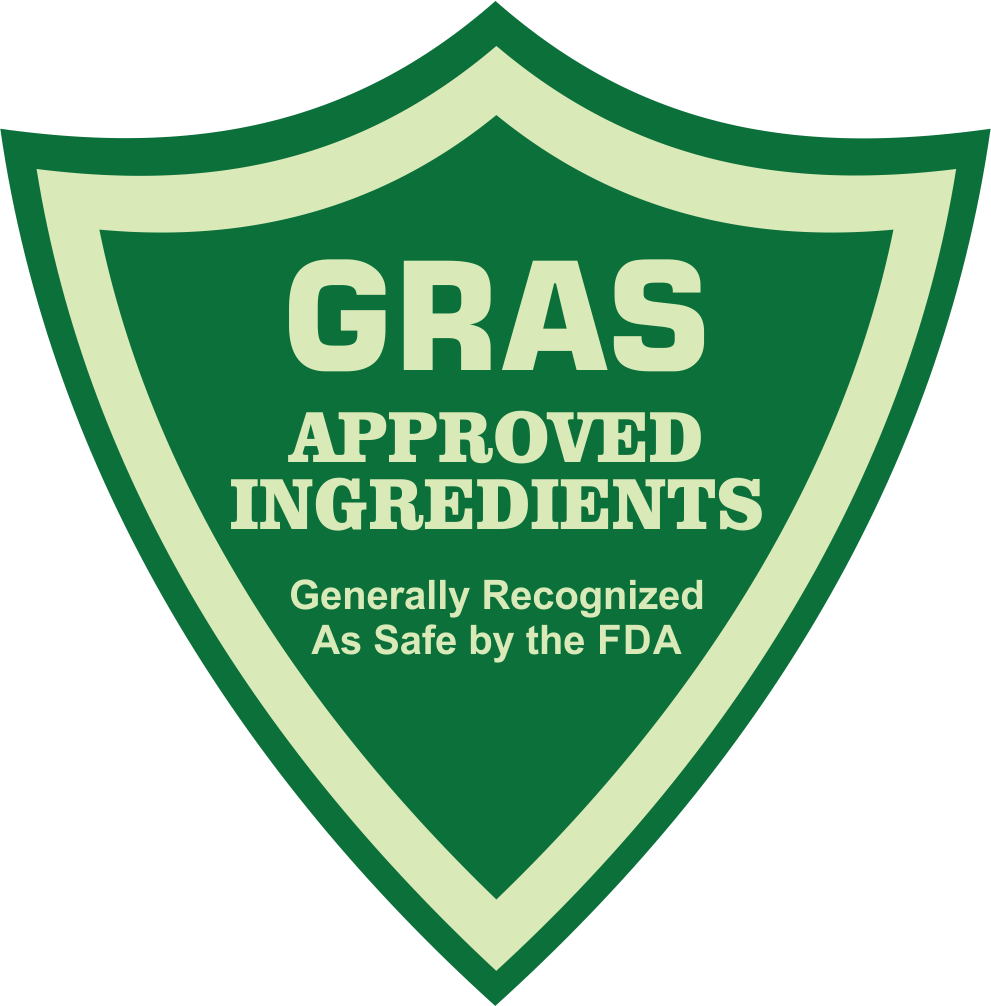
The SAFEST All Natural Ingredients
EarthSential products are made with safety as our first ingredient! Our ingredients are all natural food grade and all found of the GRAS List, approved as SAFE ingredients by the FDA. Rest assured that our products are the SAFEST in the world, we made them that way.
Related Articles:
![]()
The Essence of Essential Oils

in Plantsol’s Aromatherapy
blog Ι Aug 14, 2023 Ι 5 Min Read
Your Signature Scent

EarthSential Essential Oil Cleaners
blog Ι Aug 19, 2023 Ι 3 Min Read
Buzz Off, Bugs!
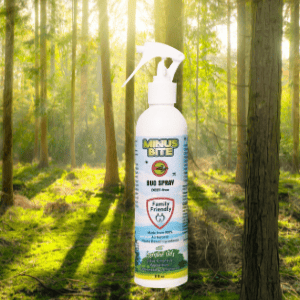
The Top Advantages of Natural Bug Sprays
by Minus Bite Ι June 13, 2023


